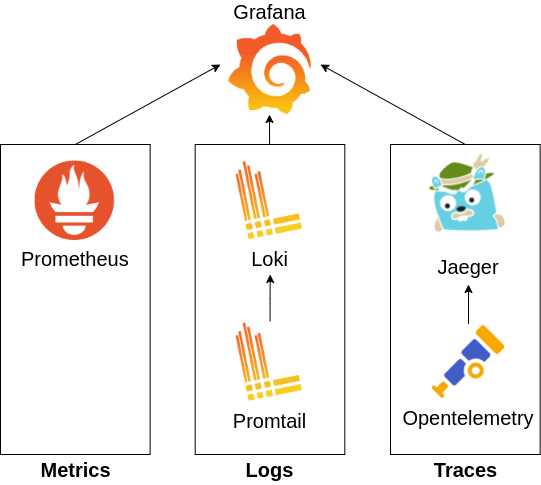My Outreachy internship with OpenTelemetry has been a transformative experience. As exciting as diving into cloud-native observability has been, I quickly realized there were words, acronyms, and concepts I didn’t fully understand when I first started. In the open-source world, encountering unfamiliar vocabulary is inevitable, but it’s also an opportunity for growth. 🌱💻💡
The Vocabulary Terms That Made Me Pause 🎯📖🛑
One term that initially stumped me was "Telemetry Data". During my first week, I kept seeing terms like traces, metrics, and logs appear frequently in OpenTelemetry documentation and discussions. While I had a basic understanding of observability, I didn’t grasp how these terms interconnected or why they were so essential.
Here’s what I learnt:
Traces show the journey of a request across microservices or systems. For instance, in a real-world scenario, tracing would reveal how a checkout request in an e-commerce app travels through services like inventory, payment, and shipping.
Metrics provide numerical data on system performance—like response times, CPU usage, or memory consumption.
Logs give detailed, time-stamped records of events happening within a service, often useful for debugging.

In OpenTelemetry, all three components work together to provide full visibility into distributed systems. That synergy is what makes OpenTelemetry such a powerful tool. 🔍🔧📊
Hesitant to Ask for Help 🤔🙋♂️🌟
At first, I hesitated to ask questions in the community chat. I wondered: What if my question was too basic? Would it make me look unprepared? But I reminded myself of my core values—Growth, Challenge, and Determination. Growth happens when you step out of your comfort zone, and asking questions is part of the process.
So, I gathered the courage to do some research and ask my mentor, about the difference between traces, metrics, and logs and how they worked in OpenTelemetry. Her explanation was clear and concise, and she even pointed me to this excellent OpenTelemetry Documentation that breaks down each term beautifully. I also found this blog post explaining real-world examples, which helped solidify my understanding. 🌐📚💬
The Power of Asking Questions 💡🗣️🤝
To my surprise, when I asked questions, others in the community chimed in, and I realised I wasn’t alone! There were other new contributors who found these terms confusing too. The OpenTelemetry community’s welcoming and collaborative environment reassured me that asking for help is not a weakness—it’s part of learning. Open source thrives on people sharing knowledge. 🌍💬❤️
Takeaways for Future Contributors 🚀📝🌟
If you’re new to open source or cloud-native technologies, here’s what I’d say:
Don’t be afraid to ask questions: Chances are, someone else has the same question but is too shy to ask.
Use available resources: Documentation, blog posts, and community forums are goldmines of information.
Embrace the challenge: Learning unfamiliar concepts can feel intimidating, but determination pays off.
Working with OpenTelemetry has shown me how critical observability is to modern applications. I now understand the foundational role telemetry data plays in diagnosing issues and improving system performance. This journey has not only expanded my technical knowledge but also reminded me that every expert once started as a beginner. 🌟📈💻
Here’s to growing, embracing challenges, and asking the questions that move us forward! 🌱🚀🙌
